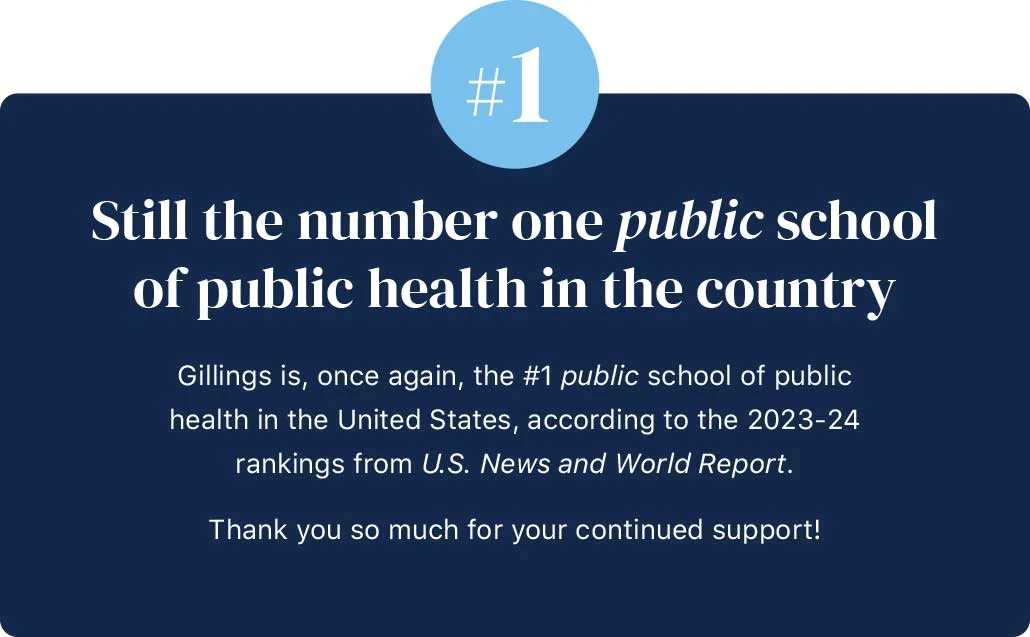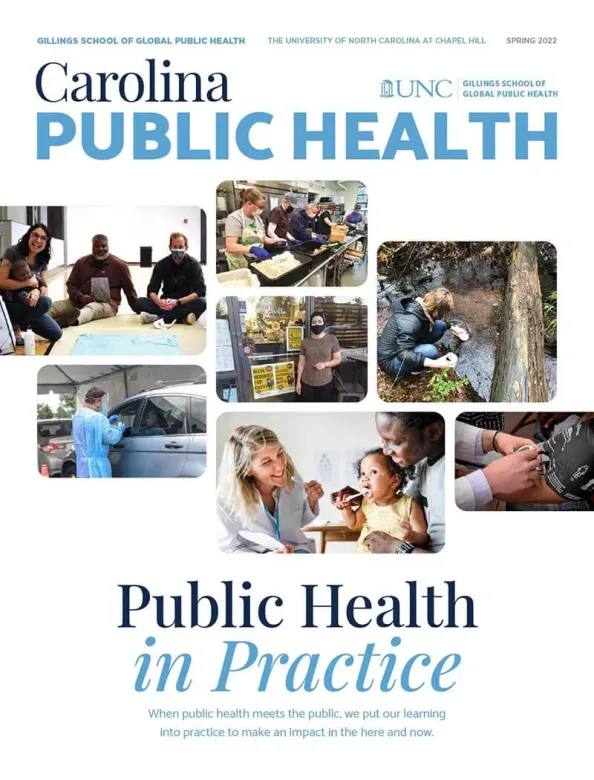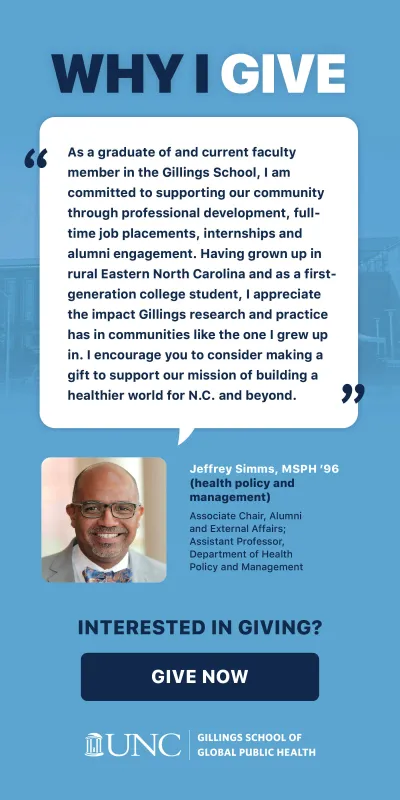Ciara Zachary uses her real-world advocacy experience to inspire students to center underserved populations and work toward health equity.
Ciara Zachary’s public health career began in research and program evaluation.
She was designing, implementing and evaluating injury prevention and behavioral health programs that focused mainly on diverse and underserved communities. She soon realized that program design could only go so far in solving public health challenges, especially where equity was concerned.
“I recognized that policy is such an important lever, and advocacy is such an important tool,” said Zachary, PhD, MPH, a 2008 MPH Gillings graduate in health behavior who earned her doctorate from Johns Hopkins University in her hometown of Baltimore.
That recognition prompted her to apply for a policy analyst position at the NC Justice Center, an advocacy organization for economic and social justice issues. Zachary got the job and moved to North Carolina, and where she became a respected policy analyst and effective advocate – first at the Justice Center and then as Health Program Director at the nonprofit organization NC Child, which works for better opportunities for all children in North Carolina.
"Her policy expertise, her passion for justice and her focus on keeping people at the center of what that work looks like is so impressive."
— Nicole Dozier, director of the N.C. Justice Center’s Health Advocacy Project
“Her policy expertise, her passion for justice and her focus on keeping people at the center of what that work looks like is so impressive,” says Nicole Dozier, director of the North Carolina Justice Center’s Health Advocacy Project. “She interacts with people in a way that makes them feel comfortable and connected, and she has a way of inspiring them to action.”
In 2020 Zachary joined Gillings as assistant professor and leader of the health policy concentration in the Department of Health Policy and Management, where she focuses on teaching public health students about policy analysis, improving equity in health care access, and the importance of communities and coalitions in achieving change.
“She is one of a special group of faculty in our school with direct advocacy experience, and she has a commitment to and long history of working with and for low-income populations,” says Pam Silberman, JD, DrPH, health policy and management professor and longtime leader in state health policy. “She has a great understanding of Medicaid and health policy, along with that real-life experience as an advocate trying to shape policy and empowering people to have a voice in the process. She’s the real deal.”
For example, as legislators began discussing shifting the state’s Medicaid program to a managed-care model in 2015, Zachary and her NC Child colleagues formed the Parent Advisory Council (PAC), a diverse group of parents and caregivers who had children with various health needs. PAC members received training and resources that helped them learn to self-advocate, then became actively involved in the policy process – drafting their own Medicaid agenda, submitting it to the state, and meeting with leaders in the legislature and Department of Health and Human Services. The PAC continues to operate today, and many of its members serve in advisory roles for community groups and state programs.
“It’s important to invite people and communities to share their voices when you’re trying to determine whether policies work or don’t work for them,” Zachary says. “Policy and advocacy work is about being in communities and working with them to help them build capacity. Leaders in their own communities should be part of the process.”
Zachary applies this people-centered approach to her classroom – not just in how she teaches but also in how she treats her students. “She places a strong focus on underserved populations and assuring that they are centered in classroom conversations,” says Raquel Harati, who worked as Zachary’s teaching assistant after taking one of her courses. “She also truly cares about her students and their well-being outside of the classroom, and advocates for students directly to the school when any issues arises that we need assistance with. She is one of the most supportive supervisors and professors I have ever had.”




